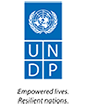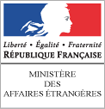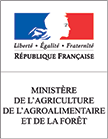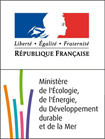
I was born in Mexico City, a huge city that has completely changed its landscape from an ancient brackish lake, to a concrete jungle. Surprisingly it is still surrounded with some oak forests and minor lakes where I spent many weekends. I was certainly born in a completely urban environment, although I never completely liked it. In my opinion, it was the city that made me appreciate, respect and value even more the forests, which I couldn’t explore as often as I wanted.
It was because of my early curiosity in the nature, the wildlife and the beauty of the outdoors that my interests were shaped in the fields of sustainability and environmental conservation. Hence, I became engaged in these topics even before knowing formally what they really meant.
Later on, I gained the knowledge and I learned about the importance of our landscapes, ecosystems, and our vital connection. I also learned where our products, foods and resources come from and I became aware of the fact that I was living in a very complex environment where not everybody could see the ecosystems the way I did.
Posterior decisions made me choose the natural sciences as a career path. On the search of linking my interests in the environment and the needs of the urban areas, I selected an environmental engineering program. I was convinced that only a realistic approach to our environment and the industry could solve the problems and preserve those areas I really enjoyed.
Consequently I worked as an environmental engineer for environmental remediation assignments and later, analyzing environmental risks to communities and landscapes of major infrastructure projects under the IFC Performance Standards.
After being in contact with the communities and the environmental risks that many of these groups faced I decided to complete a master’s degree program in Sustainable Resource Management. I also acquired some experiences in the financing of natural resources (mining and commodities).
However, It was until I had to write my final thesis that I ventured into the field of the natural resources in Indonesia where I experienced on the first hand the increasing problems of the landscapes and its consequences, product of the increasing population and some industries that supply our daily needs and habits. As a part of my research I identified the landscapes´ values and perceptions of the members of a community in Kalimantan. I witnessed the necessity of innovative approaches, tools and ideas towards sustainable solutions for the most pressing concerns of the landscapes.
I have been lucky enough to have this experiences and I am thankful participate this year in particular in the landscape and restoration challenge. It is a perfect opportunity to come up with ideas to generate and use data more effectively to drive better land restoration processes in order to rehabilitate and maintain threatened and degraded landscapes
I am looking forward to join the Global Landscapes Forum and I see it as a very innovative platform and as an ideal opportunity to meet other engaged people, to learn from experts, to express our concerns, opinions and to raise our voices.
Diego Aranda is one of the 10 young champions who will work on the “ Landscape restoration” challenge with Youth program’s partner: WLE (CGIAR).
Learn more about the Global Landscapes Forum’s Youth program, meet our 50 youth champions and discover the 5 Landscapes challenges they will take up, in December, in Paris.





































